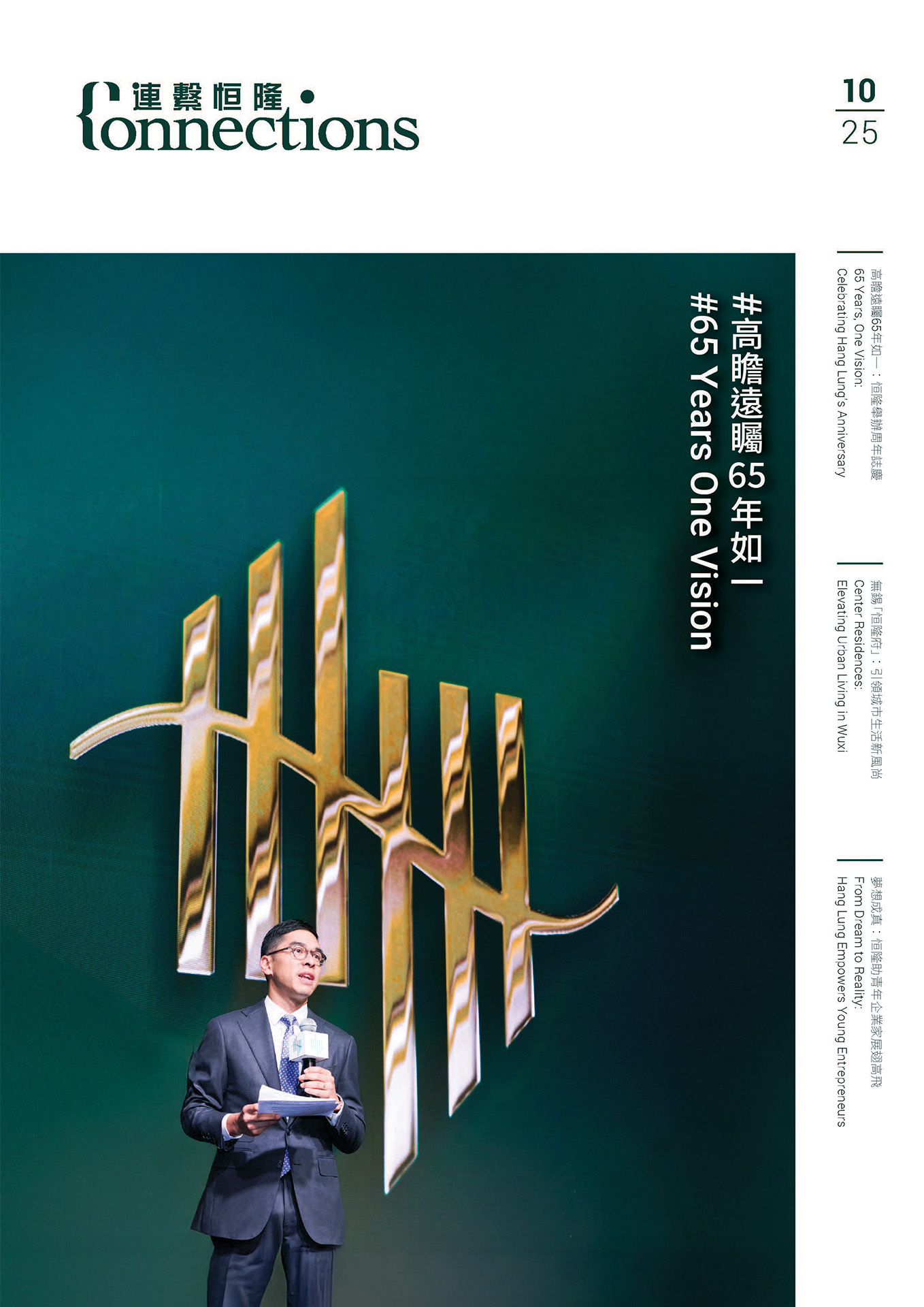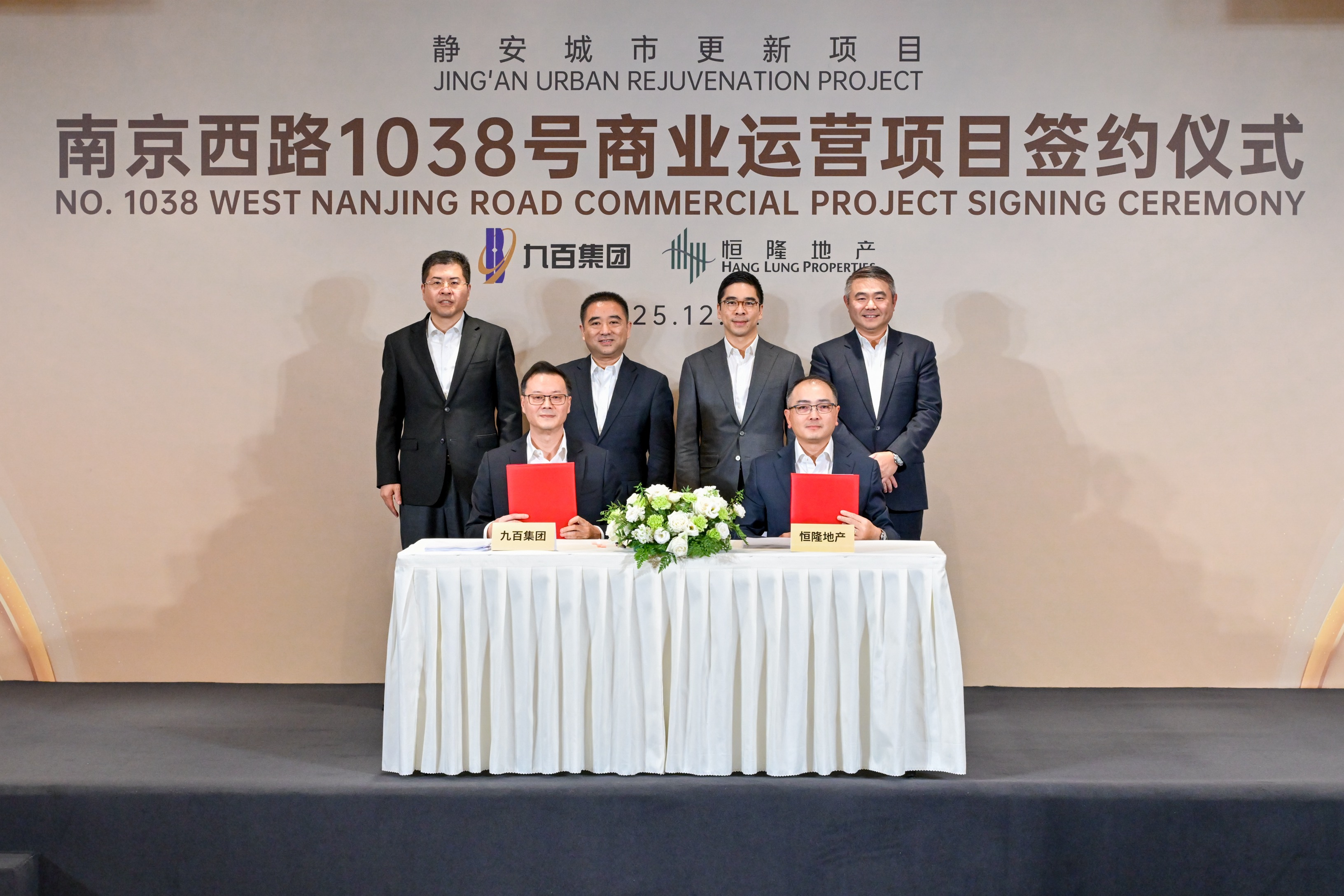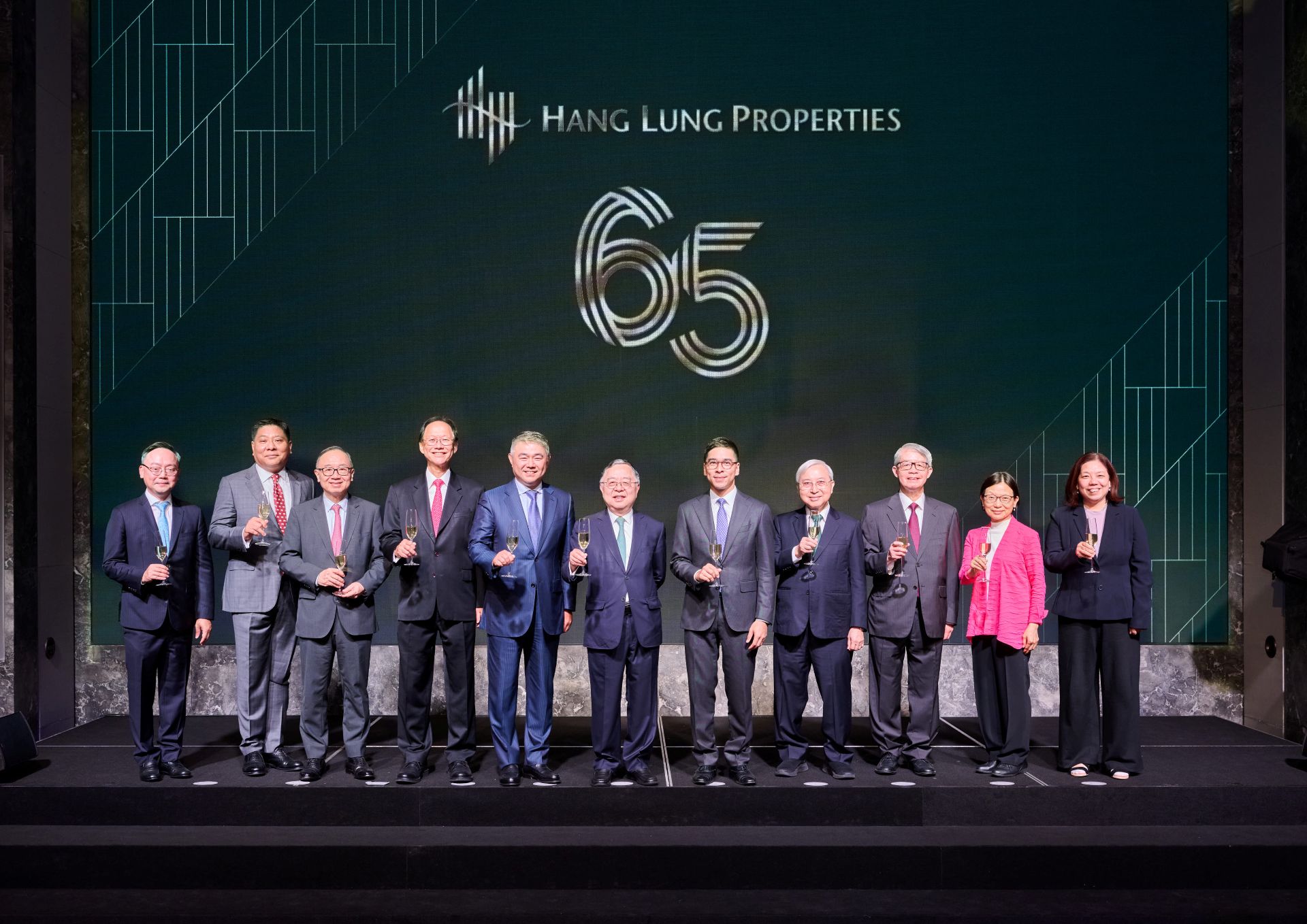(Hong Kong and Shanghai, March 24, 2025) Hang Lung Properties Limited (SEHK stock code: 00101) (the “Company” or “Hang Lung”) has published a first-of-its-kind discussion paper, “Our Journey to Net Zero: Our Scenarios and Actions to Reduce Greenhouse Gas Emissions to 2050.”
While many companies have made net zero commitments, few have carefully examined how to achieve these commitments. Hang Lung has risen to this challenge, adopting an innovative approach based on a decarbonization model with more than 1,000 internal and external data inputs. From this thorough analysis, it has developed two main scenarios to understand potential pathways for the Company to reduce greenhouse gas (GHG) emissions to 2050.
From a starting point of around 1,000,000 tonnes of GHG in 2023, Hang Lung’s emissions could drop to fewer than 100,000 tonnes by 2050—and even go as low as 16,000 tonnes. The scale of new construction and the emissions intensity of available construction materials will play a critical role in shaping this reduction.
The Journey to Net Zero paper concludes that the Company has the potential to fully achieve net zero by 2050. However, doing so will require consistent effort and sustained focus, including strategic collaboration with suppliers. The Company will also need to leverage advancements in technologies.
While the paper’s analysis is based on a close examination of Hang Lung’s emissions pathways, it also raises issues applicable to peers and standard setters. For instance, the paper highlights overlooked sources of emissions, discusses key carbon accounting issues for the sector, and calls for greater transparency and standardized benchmarking for construction materials.
“The real estate sector has a responsibility to reduce its carbon emissions,” Mr. Adriel Chan, Chair of Hang Lung Properties and Chair of the Sustainability Steering Committee, said. “But we need to form a long-term vision together. By addressing key issues head-on—including the impact of business expansion, decarbonization of construction supplies and energy, and emissions blind spots—Hang Lung is demonstrating in this paper that we take our net zero commitment seriously. We also encourage our peers and partners to embrace greater transparency, so we can all learn from and collaborate with one another.”
Illustrating its commitment to catalyzing change in real estate, Hang Lung has outlined eight key actions it is pursuing to support its long-term journey to net zero emissions by 2050:
1. Advancing energy efficiency
2. Expanding renewable energy procurement
3. Improving material efficiency
4. Reducing the GHG intensity of construction materials
5. Collaborating with suppliers
6. Exploring ways to repurpose existing properties
7. Improving lifecycle refrigerant management practices; and
8. Collaborating with tenants to reduce emissions.
These actions are discussed in greater detail in the paper: https://www.hanglung.com/en-us/media/sustainability-publications.
Expert Reactions
“This effort is truly a milestone and a commendable example for the real estate sector.” – Wei Li, Principal, RMI China.
“Candid, collaborative and practical, this report redefines how companies should report on net zero progress.” – Raefer Wallis, Founder and Chief Executive Offier, GIGA/RESET Standard.
“I believe methodologies and insights from this report can effectively enhance capacity and encourage industry action.” – Da Zhang, Associate Professor, Institute of Energy, Environment and Economy, Tsinghua University.
“The scenario-based approach is very enlightening, with open analysis of uncertainty rather than strategizing with the hope of a magically smooth curve down to zero carbon emissions.” – Jenny Zhang, Director of Sustainability, APAC, Urban Land Institute.





.png)
.jpg?width=3264&height=2176&ext=.jpg)








